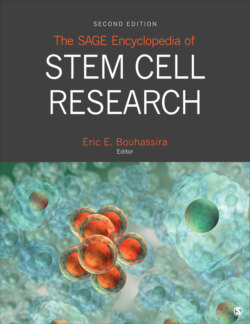Читать книгу The SAGE Encyclopedia of Stem Cell Research - Группа авторов - Страница 267
На сайте Литреса книга снята с продажи.
California Institute for Regenerative Medicine
ОглавлениеThe California Institute for Regenerative Medicine (CIRM) is governed by a 29-member board comprised of stem cell researchers, business leaders, and patient advocates. CIRM monitors stem cell activity within the state and provides funds for stem cell research. Its stated mission is to increase knowledge of stem cell therapies designed to mitigate suffering from disease and injury while conforming to the highest medical standards governing the field of stem cell research. The institute was established by Californians as part of Proposition 71. Because of lawsuits that blocked bond funds, it was not until 2006 that CIRM opened its doors in San Francisco.
By early 2014, CIRM had made 606 awards totaling $1,748,625,009 to fund stem cell research at California’s universities, medical facilities, foundations, institutions, and private companies. CIRM also awards funds to individual researchers. CIRM sponsors the Regenerative Medicine Consortium, which is comprised of private companies, academic institutions, and funding entities. The consortium provides members with a forum for sharing information and serves as a technical resource.
The lion’s share (69 percent) of CIRM resources is dedicated to funding stem cell research. Eleven percent is earmarked for training, and the remaining 20 percent is used to run the facility. Three-fourths of research resources are directed toward developing treatments for neurological disorders (34 percent), heart/vascular disease (15 percent), blood immune disorders (14 percent), and cancer (12 percent). Other research resources are devoted to sensory organs (6 percent), bone/cartilage disorders (5 percent), muscular disorders (5 percent), diabetes (3 percent), GI/liver (3 percent), reproductive diseases (2 percent), and kidney/urinary (1 percent).
CIRM has formed collaborative relationships with a number of stem cell agencies, including some in other countries. Collaborators include France’s Agence Nationale de la Recherche, the AIDS Healthcare Foundation, Spain’s Andalusian Initiative for Advanced Therapies and the Ministry of Science and Innovation, Canada’s Cancer Stem Cell Consortium, China’s Ministry of Science and Technology, Germany’s Federal Ministry of Education and Research, Japan’s Science and Technology Agency, the Juvenile Diabetes Research Foundation, Keystone Symposia of Molecular and Cellular Biology, the Maryland Technology Development Corporation, the United Kingdom’s Medical Research Council, the Muscular Dystrophy Association, Australia’s National Health and Medical Research Council and the State of Victoria, the United States National Institutes of Health, the New York Stem Cell Foundation, Brazil’s São Paulo Research Foundation, Scottish Enterprise, and health organizations in Argentina, Brazil, and India.
Various groups within California are also coming together to coordinate stem cell research efforts. For instance, in San Diego, the University of California, Burnham Institute for Medical Research, Salk Institute for Biological Studies, and Scripps Research Institute formed a consortium in 2006 dedicated to sharing stem cell research and funding. This consortium has received a total of $37,336,063 in Comprehensive Research Grants from CIRM.
